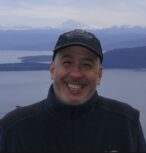DNA reveals the past and future of coral reefs
New DNA techniques are being used to understand how coral reacted to the end of the last ice age in order to better predict how they will cope with current changes to the climate. James Cook Univer

From 2005 to 2022, the main node of the ARC Centre of Excellence for Coral Reef Studies was headquartered at James Cook University in Townsville, Queensland (Australia)








Abstract: Anyone trying to communicate about sustainability quickly runs into difficulties. The most common definition, “development which meets the needs of the present without compromising the ability of future generations to meet their own needs” first appeared in the World Commission on Environment and Development’s report, Our Common Future. This concept has been adopted for fisheries with a focus on supporting food security now and into the future. The institutions supporting this notation of sustainability require massive amounts of information in order to ensure that we take the maximum amount of seafood from the ocean without harming the long-term productivity of the fishery. However, high precision monitoring is costly, requires analysis and storage of massive datasets, and can delay decision making. I argue that this mammoth effort has provided us everything we need to create a system that is precisely unsustainable. By focusing on one aspect of sustainability our institutions have marginalized ecological and social aspects of seafood sustainability and hampered the development of corresponding data development. Ultimately, the value of information underlying truly sustainable fisheries is determined by a dialogue among those with diverse values and institutions that fairly and equitably considers those values.
Biography: Phillip Levin is the lead scientist of The Nature Conservancy, Washington and a Professor-of-Practice at the University of Washington. Levin is a conservation scientist who is interested in bridging the gaps between theory and practice in conservation, and developing modeling and statistical approaches to inform conservation and management of ecosystems. The main focus of his current work is developing interdisciplinary tools to inform conservation of marine, aquatic and terrestrial ecosystems and the communities that depend on them. Prior to joining the Nature Conservancy and University of Washington, he was the Director of Conservation Biology and a Senior Scientist at NOAA Fisheries in Seattle, USA. He has published over 200 scientific papers in peer-reviewed journals, book chapters and technical reports, and edited the recently published book, “Conservation of the Anthropocene Ocean: interdisciplinary approaches for nature and people”. His work has been featured in such news outlets as The New York Times, Aljazeera, CNN, NPR, PBS, the BBC, MSBNC, The Economist, among others. Levin received his Ph.D. in zoology from the University of New Hampshire in 1993 and was a postdoctoral fellow at the University of North Carolina.
New DNA techniques are being used to understand how coral reacted to the end of the last ice age in order to better predict how they will cope with current changes to the climate. James Cook Univer
A new study on the effects of climate change in five tropical countries has found fisheries are in more trouble than agriculture, and poor people are in the most danger. Distinguished Profess
James Cook University researchers have found brightly coloured fish are becoming increasingly rare as coral declines, with the phenomenon likely to get worse in the future. Christopher Hemingson, a
Researchers working with stakeholders in the Great Barrier Reef region have come up with ideas on how groups responsible for looking after the reef can operate more effectively when the next bleaching
Abstract: As marine species adapt to climate change, their heat tolerance will likely be under strong selection. Individual variation in heat tolerance and its heritability underpin the potential fo
Abstract: The Reef Ecology Lab in KAUST’s Red Sea Research Center explores many aspects of movement ecology of marine organisms, ranging from adult migrations to intergenerational larval dispersal
Abstract: Macroalgal meadows are a prominent, yet often maligned component of the tropical seascape. Our work at Ningaloo reef in WA demonstrate that canopy forming macroalgae provide habitat for ad
Abstract: Sharks are generally perceived as strong and fearsome animals. With fossils dating back at least 420 million years, sharks are not only majestic top predators but they also outlived dinosa
Abstract: Connectivity plays a vital role in many ecosystems through its effects on fundamental ecological and evolutionary processes. Its consequences for populations and metapopulations have been
Abstract: Evolution of many eukaryotic organisms is affected by interactions with microbes. Microbial symbioses can ultimately reflect host’s diet, habitat range, and even body shape. However, how
Abstract: The past few years have seen unprecedented coral bleaching and mortality on the Great Barrier Reef (GBR) but the consequences of this on biodiversity are not yet known. This talk will expl